MOOR PARK PRIMARY SCHOOL AND NURSERY
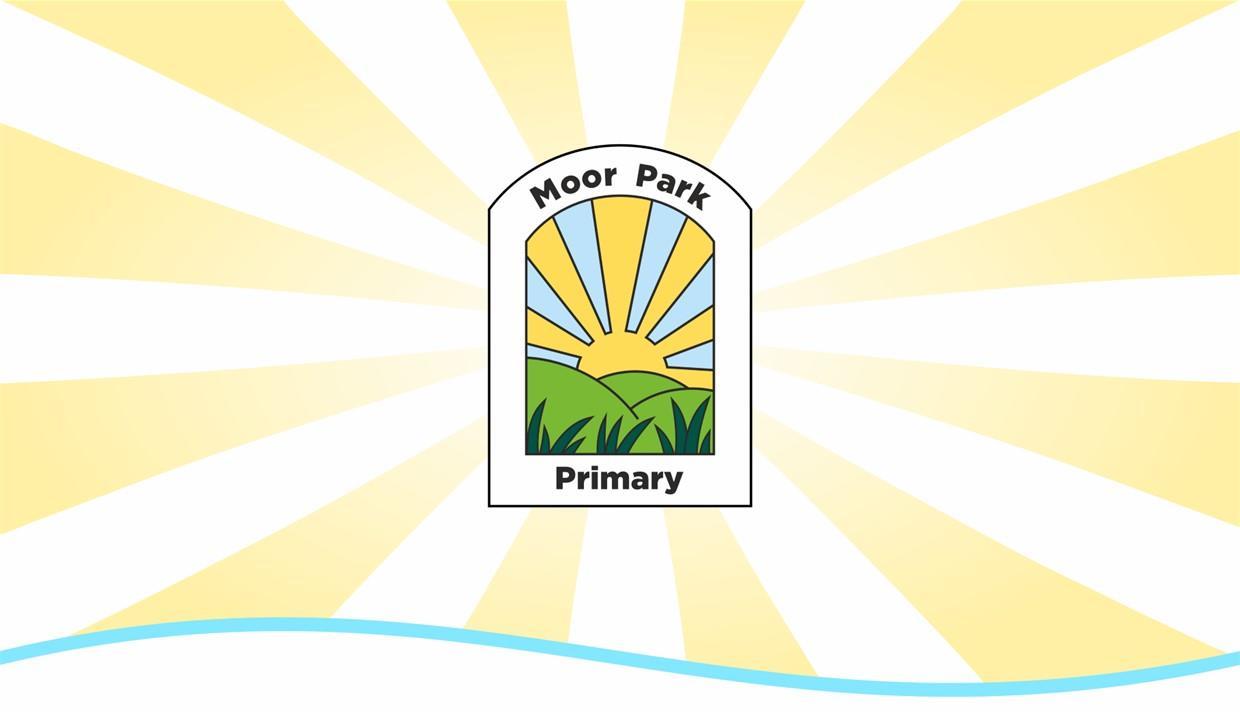
SEND INFORMATION REPORT September 2025
Together as a family we grow and achieve.
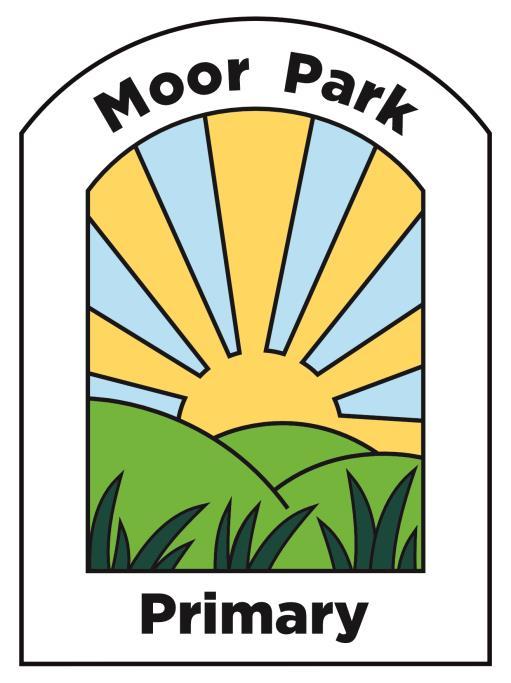


SEND INFORMATION REPORT September 2025
Together as a family we grow and achieve.


The aim of this Information Report is to explain how we implement our SEND policy. In other words, we want to show you how SEND support works in our school!
Moor Park Primary OFSTED Report 2023
“Leaders have ensured that staff are well equipped to support the needs of pupils with SEND. Leaders identify pupils’ additional needs early and they work closely with a range of external experts. This is particularly successful in meeting the needs of those pupils with more complex needs.”
• 1. What types of SEND does the school provide for?
• 2. Which staff will support my child, and what training have they had?
• 3. What should I do if I think my child has SEND?
• 4. How will the school know if my child needs SEND support?
• 5. How will the school measure my child’s progress?
• 6. How will I be involved in decisions made about my child’s education?
• 7. How will my child be involved in decisions made about their education?
• 8. How will the school adapt its teaching for my child?
• 9. How will the school evaluate whether the support in place is helping my child?
• 10. How will the school resources be secured for my child?

• 11. How will the school make sure my child is included in activities along side pupils who don’t have SEND?
• 12. Our enhanced provisions to support Learners with Complex Needs - The HIVE
• 13. Our enhanced provisions to support Learners with Complex Needs – The HALO
• 16. Pastoral Provisions
• 14. How does the school make sure the admissions process is fair for pupils with SEN or a Disability?
• 15. How does the school support pupils with disabilities?
• 18. How will the school support my child’s mental health, emotional and social development and wellbeing?

• 19. What support will be available for my child as they transition between classes or settings or in preparing for adulthood?
• 20. What support is in place for looked-after and previously looked after children with SEND?
• 21. What should I do if I have a complaint about my child's SEND support?
• 22. What support is available for me and my family?
• 23. Glossary

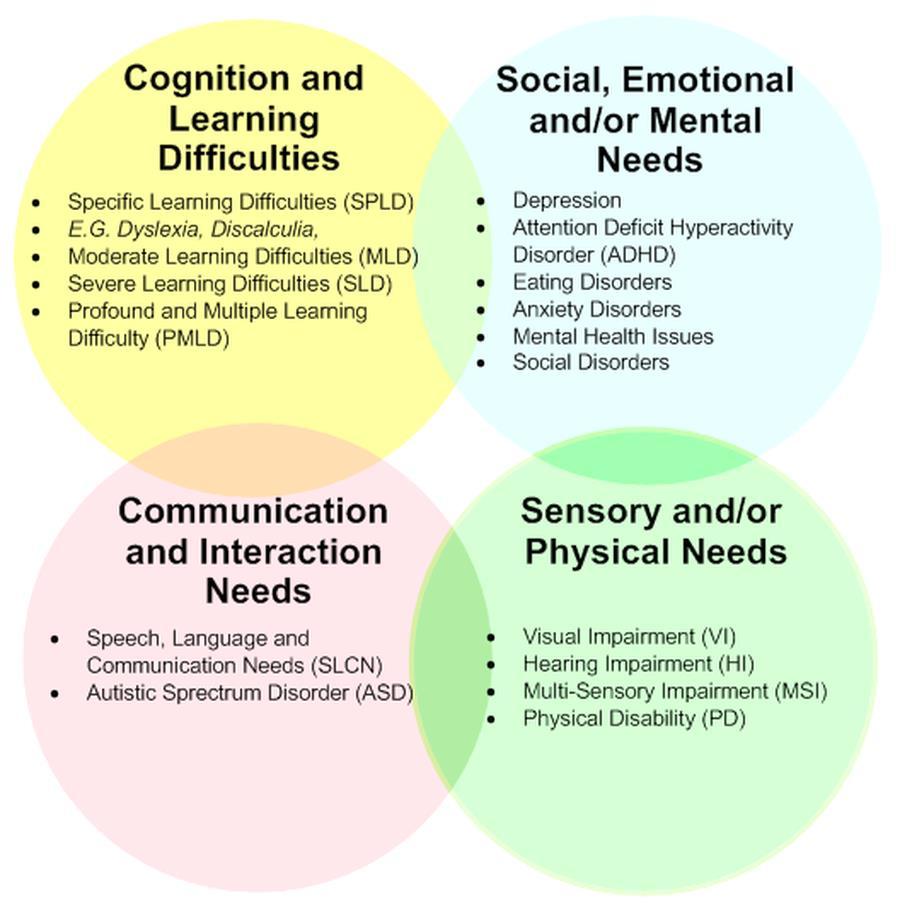
Which staff will support my child, and what training have they had?
The Special Educational Needs Co-Ordinator (SENCo) at Moor Park Primary School is Miss Claire Singleton
Miss Singleton is a qualified teacher and has over 10 years of experience in mainstream classrooms and Specialist Educational Referral Facility. She is a Mental Health First Aider, has qualifications in Elklan Level 3 and Elklan Specialist SEMH program (to support children's Speech and Language) and is currently undergoing her NPQ in SENDCO qualification.
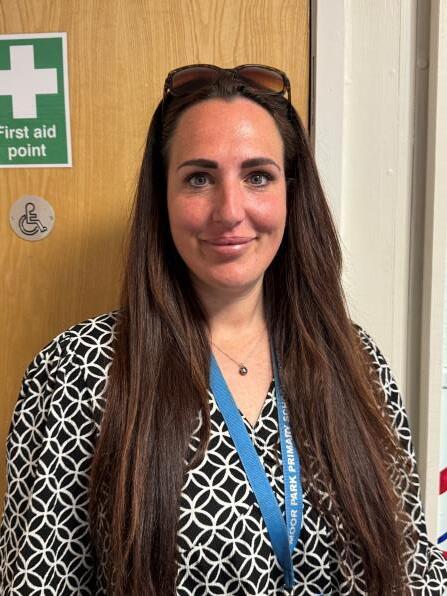
You are able to email Miss Singleton at: claire.singleton@moorpark.blackpool.sch.uk. Alternatively you can phone the school on 01253 353034 and ask to speak to her.
Working alongside Miss Singleton are:


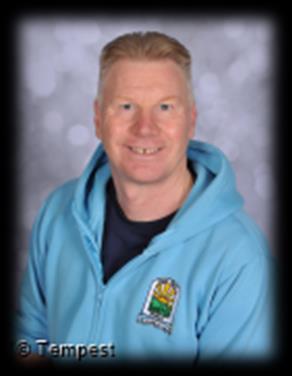

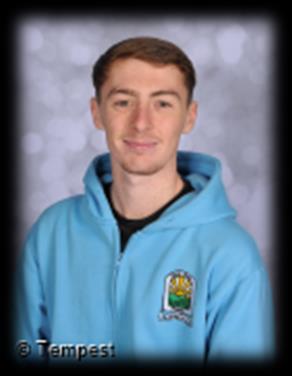

Family Support Worker
SEND Support Assistant
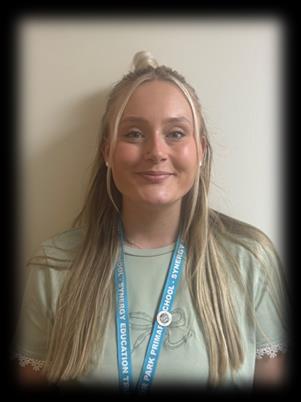
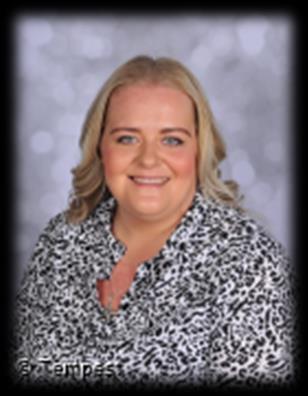
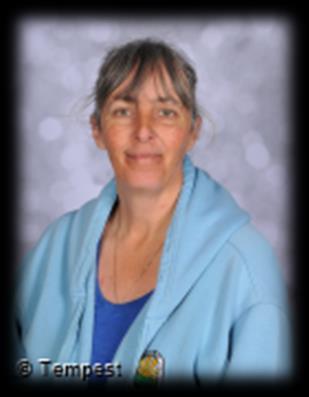
Behaviour / SEMH (Social Emotional and Mental Health) Team.


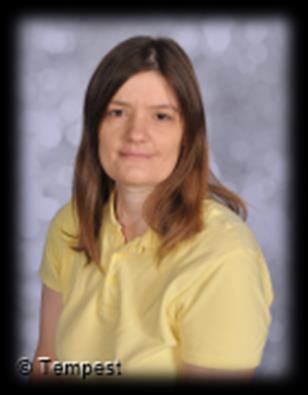
Class Teacher
Complex Needs Support Assistants.
• All our teachers receive in house SEND training through the SENDCo, Blackpool SEND Support Team and a range of specialists working in the school throughout the year. These Professional development supports the teachers to meet the needs of the children who have SEND and supports them to identify and effectively support the additional needs of pupils with SEND.
• We have a team of LSAs ranging from LVL 2 to 4. The staff are trained to support teachers and provision within the classrooms and deliver interventions. They receive in house training and external training through experts working with the school. These interventions take place within the classroom and the school environment delivered in groups and an individual basis.

At Moor Park Primary School, we are committed to the continuous professional development of our staff.
Teachers and Teaching Assistants regularly engage in training opportunities both within school and through local providers. These sessions are closely aligned with our School Development Plan to ensure they meet current educational priorities.
Staff are encouraged to share their learning during staff meetings and dedicated Teaching Assistant sessions, fostering a collaborative learning environment. Teachers also work closely with the SENCo and advisory teachers during review meetings to ensure tailored support for pupils with special educational needs. Our strong partnerships with external support services ensure expert advice is always accessible.
Communication and Interaction
Speech and Language inc. Wellcomm
Language 4 thinking
Language 4 Behaviour
Talkabout Relationships
Talkabitiy
Time to Talk
More Than Word
Processing / Language Games
Social Communication
sSocial, Emotion and Mental Health
Counselling
Learning Mentor Program
Emotion Coaching
Incredible 5 Point Scale
CBT- Starving the Anxiety / Anger Gremlin
Story Massage
Cognition and Learning
Every day readers
RWI Phonics blast
Number Interventions
Precision Teach
Colourful Semantics
Active Spelling
Phonological Awareness
IDL
First class @ Number
Physical and Sensory
Handwriting
Dough Disco
Dance Mat
Occupational Therapy
Physiotherapy
Fine and Gross Motor Skills
Sensory Circuits / diets
For children with identified special educational needs or disabilities, Moor Park Primary follows an ‘assess, plan, do, review’ cycle. There may be occasions, with the agreement of parents/carers, when we need to request additional services and expertise through a referral system.
• EYFS SEND Support Team
• SEND SUPPORT TEAM – for support and advise for children who may display needs with: cognition and learning, communication and interaction, sensory and physical (including hearing and visual needs) or social, emotional and mental health.
• CAMHS – child and adolescent mental health service
• CHILDREN’S WELLBEING PRACTITIONER
• SCHOOL NURSE
• GPs and PAEDATRICIAN
• HEALTH VISITOR
• SPEECH AND LANGUAGE THERAPY
• EDUCATIONAL PSYCHOLOGY – for pupils who display more complex needs.
• NEURODEVELOPMENTAL PATHWAY- for complex cases or assessment of ASD
• OCCUPATIONAL THERAPY
• PRIMARY MENTAL HEALTH WORKER
• EDUCATIONAL WELFARE OFFICERS
• SOCAIL SERVICES and other Local Authority support services
• VOLUNTARY SECTOR ORGANISATIONS
• COUNSELLING SERVICES (New Start on site)
Tell us about your concerns
We will invite you to a meeting to discuss
If you think your child might have SEND, the first person you should tell is your child’s teacher. A meeting will be arranged to discuss your concerns and may include the SENDCo if they feel they need advice and support. Alternatively, they might meet with yourselves and another meeting might be needed with the SENDCo present.
You can also contact the SENDCo directly for advice and recommendations after you have spoken to the class teacher. Again, please contact the office to arrange an appointment.
A decision will be made whether your child needs SEND support.
We will meet with you to discuss your concerns and try to get a better understanding of what your child’s strengths and difficulties are. Together we will decide what outcomes to seek for your child and agree on next steps. This will be reviewed over a half term or term depending on the nature of difficulties and support in place.
If a decision is made that your child needs SEND support, you will be informed and your child will be added to the school’s SEND register. School and families working together is key to ensuring any barriers to learning are supported.
The Graduated Approach expects settings and schools to make full use of all their resources and expertise before accessing increasingly personalised support. By continually monitoring all children, settings and schools can decide on the most appropriate level of support for all children, including those with SEND.

At Moor Park Primary School, all teachers have high expectations in order to meet the needs of the children in their care. Lessons are differentiated, planning is adapted and teaching styles are varied in order to meet the different learning styles of the children. If there is a barrier to a child's learning, the class teacher will initially try to overcome this by making reasonable adjustments to their teaching.

At Moor Park Primary School, all teachers have high expectations in order to meet the needs of the children in their care. Lessons are differentiated, planning is adapted and teaching styles are varied in order to meet the different learning styles of the children. If there is a barrier to a child's learning, the class teacher will initially try to overcome this by making reasonable adjustments to their teaching.
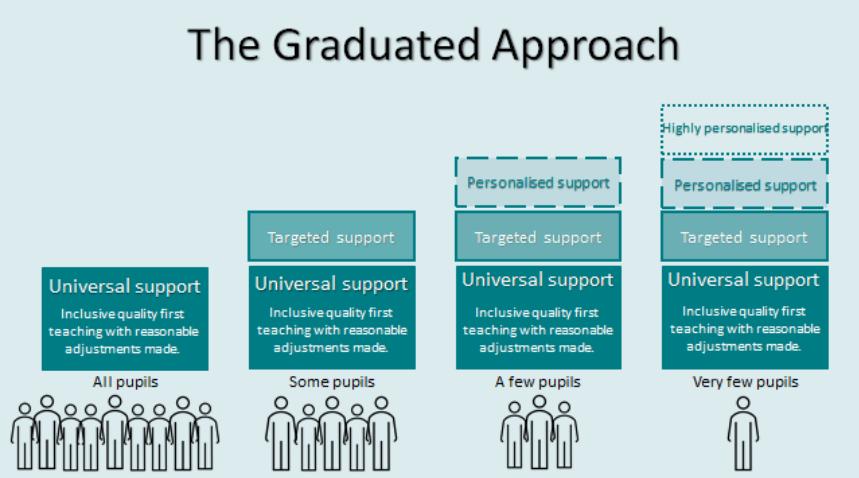

If despite these reasonable adjustments, the child’s needs are still not being fully met, the child will move to SEND support where they will receive regular monitoring and assessments by the SENCO and advice from Advisory Teachers and outside agencies within Blackpool will be sought. At this stage, the Teachers will hold regular assess, plan, do, review meetings to enable everyone involved with the child (teacher, parent, child, adviser or outside agency) to assess the progress the child is making and plan how to overcome the barriers they may be facing.

In a few cases, where a child’s needs are still not being met and their needs appear to be presenting as complex and long term the advise of an Educational Psychologist will be sought and an application for statutory assessment may be made.
Identify pupils strengths and needs to inform effective planning and appropriate provision Teacher continually review pupil progress and hoe effective the support has been.
Implement the support and gain a greater understanding of how the pupil learns

Use assessment information and views to plan teaching approaches
Appendix of flow chart to support parents understanding
For any child on the SEND Register, an assess, plan, do review cycles will take place. Baselining the children to measure their progress and having specific outcomes and SMART targets are key to ensuring gaps in learning are reduced. These targets and outcomes will be tracked and measured over time These documents are shared with parents and carers 3 times a year and any additional times when needed. These meeting can involve the SENDCo and she oversees all pupils APDR cycles by working with teachers to ensure the pupil is getting the most effective provision and support to meet their needs.
At Moor Park Primary School, children's learning is continually monitored, and formally assessed 3 times a year in reading, writing and mathematics. For children with SEND, a SEN Support Plan (APDR Cycle) is created and reviewed 3 times a year. Working together (school, parents/carers, child and any other external agencies), we will discuss, plan and agree outcomes and review progress on provision and targeted support.
We know that you are the experts when it comes to your child's needs and aspirations. So we want to make sure there is a full understanding of how to meet your child's needs including what you think would work best!
How
The SENDCo may also attend these meetings to provide extra support. If you have concerns which arise between these meetings, please contact your child's teacher to discuss these concerns.
The level of involvement will depend on your child’s age, and level of competence. We will seek your child's views by asking them to:
• Attend meeting to discuss their progress and outcomes
• Design and create their own One Page Profiles
• Discuss their views with a member of staff who can act as a representative during a meeting
• Complete a survey
Your child’s teacher is responsible and accountable for the progress and development of all the pupils in their class.
• High-quality teaching is our first step in responding to your child’s needs. We will make sure that your child has access to a broad and balanced curriculum in every year they are at our school.
• Teachers use adaptations and differentiation in their lessons so that all children, including those with special educational needs or disabilities, have access to it and make progress towards the learning objectives.
• We will differentiate, adapt and be responsive in how we teach to suit the way the pupil works best. There is no '1 size fits all’ approach to adapting the curriculum, we work on a case-by case basis to make sure the adaptations we make are meaningful to your child.
• Our marking policy allows for all children to see what they have achieved and how they can move their learning forward. Regular gap tasks are given to ensure a child’s understanding or to extend their learning.
These adaptations include but are not limited to:
• Adapting our curriculum to make sure all pupils are able to access it, for example, by grouping, 1-to-1 work, adapting the teaching style or content of the lesson, etc.
• Adaptive teaching strategies, for example, giving longer processing times, pre-teaching of key vocabulary, reading instructions aloud, scaffolding worksheets, etc.
• Adapting our resources and staffing
• Using recommended aids, such as laptops, coloured overlays, visual timetables, larger font, etc.
• Teaching assistants may support pupils on a 1-to-1 basis if this is stated on their APDR
• Teaching assistants will support pupils in small groups depending on learning outcome.
• Adult support in social situations such as on the playground
• Use of the HUB or HAVEN for targeted SEMH support
We will evaluate the effectiveness of provision for your child by:
• Reviewing their progress towards their goals each term
• Reviewing the impact of interventions at least termly but sometimes half termly
• Using pupil questionnaires
• Monitoring by the SENDCo
• Using provision maps to measure progress
• Holding an annual review (if they have an education, health and care (EHC) plan)
• Pupil Progress meetings with the Senior Leadership Team
• Use the Local Authorities Small Steps assessment criteria to measure progress and set targets
• For some children, we will use Cherry Garden (through Tapestry) to measure progress and set targets.
• For some pupils, we may use SCERTS to assess and monitor pupil progress, alongside Small Steps.
How will the school resources be secured for my child?
It may be that your child’s needs mean we need to secure:
•Extra equipment or facilities
•Further training for our staff
•External specialist expertise
If that’s the case, we will consult with external agencies to get recommendations on what will best help your child access their learning.
The school will cover up to £6,000 of any necessary costs. If funding is needed beyond this, we will seek it from our local authority.
• Reasonable adjustments will always be made to promote access to all areas of the school curriculum and the wider school activities. Moor Park Primary School offers a variety of breakfast, lunchtime and after school activities which are available to all children, ranging from Science to Choir, Drama to Nurture and mentoring. All staff involved in the delivery of the sessions are made aware of any children who may encounter difficulty in accessing the club, and allowances are provided accordingly. Additional staff provide support at lunchtime, swimming and off site trips where necessary. Risk assessments are written to measure any potential dangers. Registers are kept for all the extra curricular activities. Parents are regularly informed about various clubs and activities for pupils with SEND within the community.
• All pupils are encouraged to take part in Sports Day / school plays etc
• No pupil is excluded from taking part in these activities because of their SEN or disability.
Welcome to our HIVE. This provision is a Resource Provision within our mainstream setting. This offers tailored provision for children with Educational Health Care Plans who require a higher level of support. Taking a holistic approach, children will access a bespoke curriculum tailored to specifically meet their individual needs. Having a hybrid model between the Hive and mainstream classes, enhances the children’s opportunities to access key learning or learning of interest. Developing skills such as independence, social interactions and tolerance of others, aspiring for integration into the mainstream classrooms wherever possible. Maintaining friendships of the wider community of school ensuring a sense of belonging in our Moor Park family.
Throughout the day adults will facilitate high quality adaptive play-based learning opportunities, both indoors and outdoors to support the pupils academic learning journey as well as their independence, life skills and emotional regulation.
Pupils' emotional regulation and pupils understanding of their emotional needs is a fundamental aspect upon which learning opportunities are based upon. Pupils' wellbeing is supported by adults who will help to co-regulate emotional responses to challenging situations.
We work in close partnership with families, therapists, and education professionals to create a learning journey that is both personal and purposeful. Whether it’s developing communication skills, building independence, or encouraging creativity, we celebrate every step forward!
We are delighted to welcome you to Our Halo, our dedicated specialist enhanced classroom. This provision is for pupils who have an Educational Health Care Plan that require a higher level of support and an alternative curriculum. It provides a safe, structured and supportive space for children who face significant barriers to learning. We recognise and celebrate the uniqueness of every child, embracing their individual strengths and together supporting their challenges helping them grow and achieve.
Our approach is grounded in a curriculum that has been thoughtfully developed in collaboration with Synergy Education Trust. This bespoke curriculum is tailored specifically to meet the diverse needs of our children, ensuring that every learning experience is meaningful, accessible, and empowering. It supports holistic development—academically, socially, emotionally, and physically—while allowing each child to progress at their own pace.
It is a communication and language rich environment which offers a flexible framework that supports children to engage with learning in ways that are meaningful and motivating to them. The Halo provided provision for the diverse profiles of young children promoting a nurturing and responsive learning environment where all can thrive.
The Halo is not just a unit, it is a family where your child will be understood supported and inspired. We are honoured to be part of your child’s educational journey and look forward to working together in partnership with you.
At Moor Park we have an established pastoral team that works with our pupils and families to identify barriers to learning and support high quality teaching every day.
The Hub offers flexible pastoral support on a target level for children who are facing barriers to learning and or emotional wellbeing difficulties.
It is a safe and supportive space where children can regulate their emotions with the support of our pastoral team. The staff use skilfully adjusted strategies to develop positive behaviours for learning for the classroom.
In addition, the Hub provides targeted intervention. They will develop key life skills such as resilience, self-control and social communication skills.
The HAVEN
The Haven is a highly flexible personalised, school-funded provision for pupils with EHCPs or who are on this pathway. It is designed to meet their individual needs in a nurturing, small-group environment, while promoting inclusion and positive relationships with mainstream peers.
Throughout the day adults facilitate high quality therapeutic adaptive learning opportunities, both indoors and outdoors to support the children’s academic learning journey as well as their Social, Emotional and Mental Health development.
How does the school make sure the admissions process is fair for pupils with SEN or a Disability?
Please see our Admissions Policy on our school website
How does the school support pupils with disabilities?
Please see our Accessibility Policy.
• We provide support for pupils to progress in their emotional and social development in the following ways:
• Pupils with SEND are encouraged to be part of the School Council, Well Being Champions, Anti Bullying Ambassadors, Eco club and take part in pupil voice surveys.
• Pupils with SEN are also encouraged to be part of our extra curricular clubs promoting team work, building friendships, communication skills.
• We provide extra pastoral support for listening to the views of pupils with SEND through sessions with our SEND support Team, TAs, Family Support worker, SENDCO and Learning mentor.
• We include additional provision and learning to include proactive work to support their understanding of their emotions and social development.
• We run a protective play and nurture club for pupils who need extra support with social or emotional development at breaks and lunch times.
• We have a ‘zero tolerance’ approach to bullying. Please see our anti bullying policy and behaviour to learn policy on our website.
• We have assigned meetings for families with our PMHW
• Miss Singleton is a Mental Health First Aider.
• SENDCo will work with the school counselling service- New Start, Primary Mental Health Worker or the School Nursing Team in order to ensure that the child’s mental health needs are met.
• We have Social Emotional and Mental Health interventions for the children identified as having difficulties in this area.
• The use of the HUB, which is our pastoral support provision is available for any child needing support to regulate their emotions or needing further assistance with their mental health and wellbeing.
• At Moor Park Primary parents and carers of new Reception children are encouraged to visit school prior to applying for a place, to look around and hear about the life and work of our school. This is the same arrangement for nonroutine admissions into other year groups.
• For any children with Special Educational Needs and Disabilities starting or leaving Moor Park, the school will endeavour to hold or attend any transition meetings involving all the professionals working with the child in order to share essential information. In some cases, this will be done over the phone.
• Our local secondary schools make arrangements to see their pupils before transfer and our children visit their new high school during their last term with us. Any children with Special Educational Needs, disabilities or medical conditions, have the opportunity to make additional visits so that they are well prepared and feel comfortable in their new secondary school. Throughout the whole year we work closely with our colleagues in the local High Schools, and are involved in many shared activities. This helps to ensure that children’s transfer to secondary education is as smooth and problem free as possible. In the second half of the Summer Term, Moor Park provides a thorough transition programme to support children moving into their next class, as this can be an unsettling time. Some children will have additional classroom visits in order to familiarise themselves in their new setting. They may also receive a booklet with key information and photographs to use over the Summer holidays.
Our SENDCo will make sure that all teachers understand how a lookedafter or previously looked-after pupil’s circumstances and their SEND might interact, and what the implications are for teaching and learning.
Children who are looked-after or previously looked-after will be supported much in the same way as any other child who has SEND. However, looked-after pupils will also have a personal education plan (PEP). We will make sure that the PEP and any SEND support plans or EHC plans are consistent and compliment one another.
Mrs. Jefferson (Deputy Headteacher) will work with Miss Singleton, our SENDCO, to make sure that all teachers understand how a looked-after or previously looked-after pupil’s circumstances and their SEN might interact, and what the implications are for teaching and learning. Children who are looked-after or previously looked-after will be supported much in the same way as any other child who has SEND. However, looked-after pupils will also have a personal education plan (PEP). We will make sure that the PEP and any SEN support plans or EHC plans are consistent and complement one another
Moor Park Primary follows the Local Authority’s School Complaints Procedure which can be found on our website
In brief, if you are not happy, the following procedure should be applied:-
• Stage 1 (informal) – speak to the class teacher, SENCO or Headteacher. Usually, this results in the resolution of any issues you are not happy with.
• Stage 2 (formal) – speak or write to the Headteacher who will acknowledge your complaint within 5 working days and will fully investigate your complaint. She will then work with you to help resolve the issues you’ve raised.
At Moor Park Primary, we strive to develop a good relationship with our parents as we are all concerned about the children’s needs, happiness and welfare. If after Stage 2, you are still unhappy, you can request a copy of the Local Authority’s School Complaints Procedure from the School Office.
If you have questions about SEND, or are struggling to cope, please get in touch to let us know. We want to support you, your child and your family. To see what support is available to you locally, have a look at Blackpool’s local offer. Blackpool Council publishes information about the local offer on their website: https://www.fyidirectory.co.uk/blackpool-local-offer Blackpool SEND directory - FYi Directory
Our local special educational needs and disabilities information advice and support services (SENDIASS) organisations are:
Proud to be part of https://www.blackpool.gov.uk/Residents/Health-and-social-care/Children-and families/SENDIASS/Home.aspx
National charities that offer information and support to families of children with SEND are:
● IPSEA
● SEND family support
● NSPCC
● Family Action
● Special Needs Jungle
• Access arrangements – special arrangements to allow pupils with SEND to access assessments or exams
• Annual review – an annual meeting to review the provision in a pupil’s EHC plan
• Area of need – the 4 areas of need describe different types of needs a pupil with SEND can have. The 4 areas are communication and interaction; cognition and learning; physical and/or sensory; and social, emotional and mental health needs.
• CAMHS – child and adolescent mental health services
• Differentiation – when teachers adapt how they teach in response to a pupil’s needs
• EHC needs assessment – the needs assessment is the first step on the way to securing an EHC plan. The local authority will do an assessment to decide whether a child needs an EHC plan.
• EHC plan – an education, health and care plan is a legally-binding document that sets out a child’s needs and the provision that will be put in place to meet their needs.
• First-tier tribunal/SEND tribunal – a court where you can appeal against the local authority’s decisions about EHC needs assessments or plans and against discrimination by a school or local authority due to SEND
• Graduated approach – an approach to providing SEND support in which the school provides support in successive cycles of assessing the pupil’s needs, planning the provision, implementing the plan, and reviewing the impact of the action on the pupil
• Intervention – a short-term, targeted approach to teaching a pupil with a specific outcome in mind
• Local offer – information provided by the local authority which explains what services and support are on offer for pupils with SEND in the local area
• Outcome – target for improvement for pupils with SEND. These targets don't necessarily have to be related to academic attainment
• Reasonable adjustments – changes that the school must make to remove or reduce any disadvantages caused by a child’s disability
• SENDCo – the special educational needs co-ordinator
• SEN – special educational needs
• SEND – special educational needs and disabilities
• SEND Code of Practice – the statutory guidance that schools must follow to support children with SEND
• SEN information report – a report that schools must publish on their website, that explains how the school supports pupils with SEN
• SEND support – special educational provision which meets the needs of pupils with SEN and disabilities
• Transition – when a pupil moves between years, phases, schools or institutions or life stages
This policy links to our policies on:
• Accessibility plan
• Behaviour
• Equality information and objectives
• Supporting pupils with medical conditions